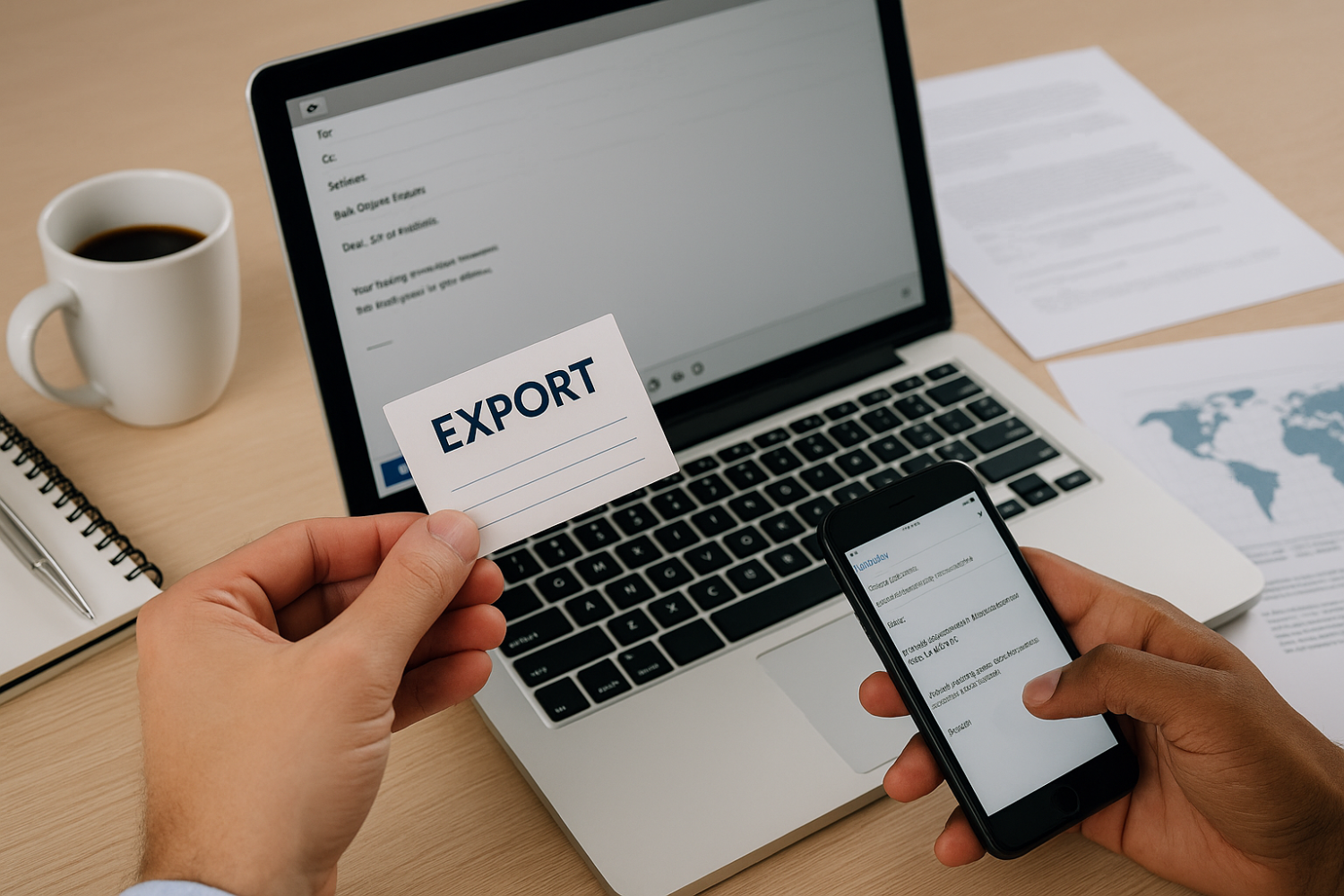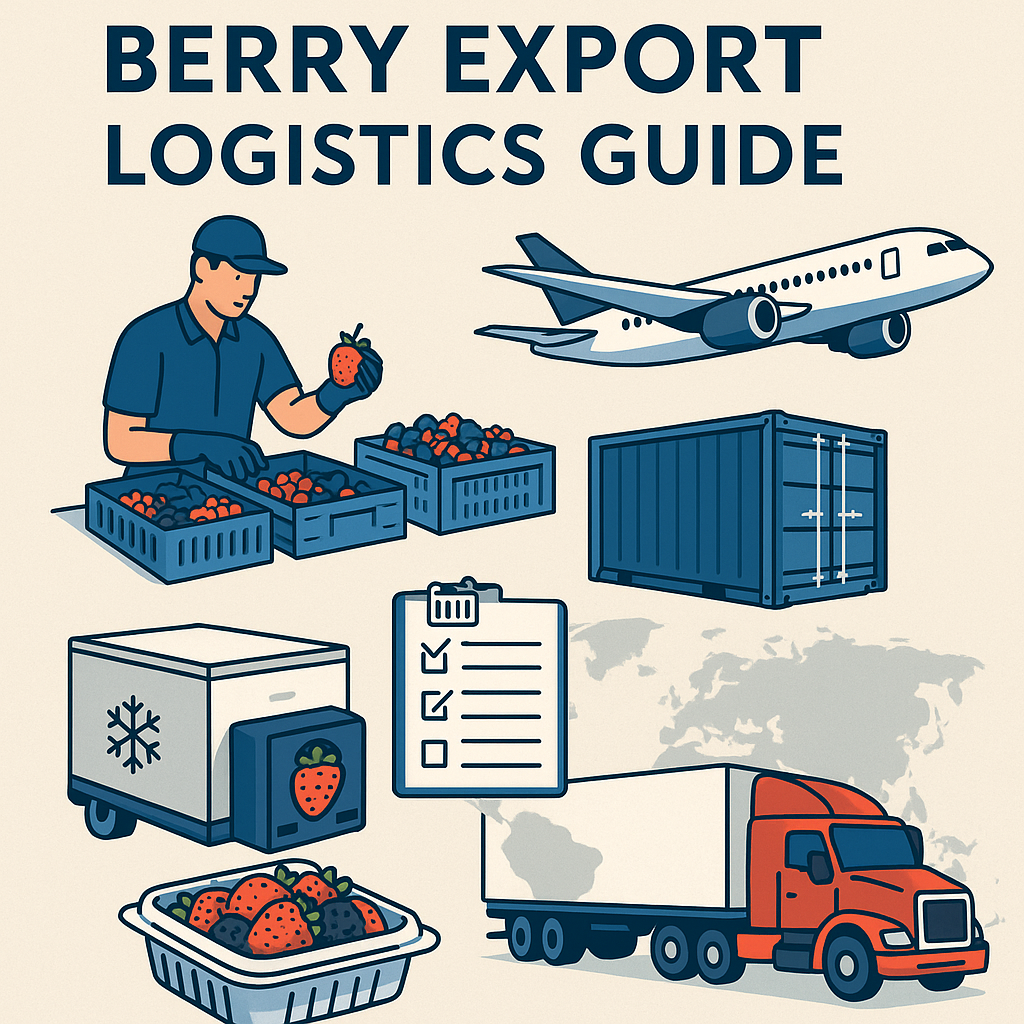How to Contact an Exporter: A Sophisticated Guide for Global Buyers

In the fast-paced world of international trade, knowing how to approach an exporter professionally can make or break a business relationship. Whether you are sourcing raw materials, finished goods, or white-label services, establishing the right contact with an exporter is critical to building trust, negotiating favorable terms, and ensuring reliable long-term supply.
This guide outlines the most effective and refined methods for initiating contact with exporters across various industries.
1. Identify Verified Exporters via Trusted Platforms
Start by locating exporters on reliable B2B trade marketplaces, such as:
-
Alibaba
-
Global Sources
-
Turkish Agro
-
TradeIndia
These platforms often feature verified suppliers, reviews, certifications, and direct communication tools such as RFQs (Request for Quotation) or “Contact Supplier” buttons.
2. Compose a Professional Initial Email or Message
Your first message should reflect your seriousness and clarity of intent. A well-written inquiry includes:
-
A formal greeting
-
A brief introduction of your company
-
Your specific request or interest (e.g., product name, quantity, delivery terms)
-
Target destination country
-
Preferred Incoterms (e.g., FOB, CIF)
-
Request for catalog or technical datasheets
-
Your contact information and availability
Example Subject Line:
Inquiry for Bulk Purchase of Zeolite Clay – FOB Istanbul
Sample Opening:
Dear Export Team,
My name is Dr. James Carter, and I represent BioHarvest USA, a wellness products company based in Florida. We are currently sourcing high-grade zeolite clay for our detox product line and are highly interested in your offerings listed on ExporterZone.com.
3. Use Structured Language and Avoid Informality
Avoid informal phrasing such as “Hey” or “How much?”. Instead, opt for clarity and business tone:
“Hi, price please.”
“Kindly provide your best export price for 1-ton MOQ, CIF Hamburg Port.”
This instantly signals professionalism and increases your chances of receiving a serious and timely response.
4. Respect Time Zones and Communication Windows
When contacting exporters in different regions (e.g., Turkey, China, India), be mindful of their business hours and national holidays. Schedule follow-ups accordingly and use tools like Calendly or Google Meet to propose video calls in a structured way.
5. Request Documents Early
For a faster procurement cycle, request export-relevant documentation such as:
-
Product catalog or specifications
-
MSDS (Material Safety Data Sheet)
-
Certificates (ISO, Halal, Organic, CE)
-
Sample policies and payment terms
-
Company profile or export registration
This helps validate the exporter’s credibility and aligns both parties on technical and regulatory standards.
6. Use Official Communication Channels
Whenever possible, prefer:
-
Company email addresses (e.g., info@companyname.com) over free domains like Gmail
-
On-platform messaging for record-keeping
-
Business WhatsApp only after initial trust is established
-
Documented confirmations via email for pricing and contracts
7. Follow Up – But Professionally
If the exporter doesn’t respond within 2–3 business days:
“Dear [Name], I am kindly following up regarding my inquiry sent on [Date]. We are evaluating suppliers this week and would appreciate your response at your earliest convenience.”
Avoid spamming or using urgent tone unless absolutely necessary.
8. Negotiate Transparently and Build Relationship
Once a dialogue has started, remember that long-term success in export trade depends on mutual benefit, respect, and reliability. Share your annual projections, ask for factory visits or live calls, and offer steady business in exchange for competitive terms.
Final Thoughts
Contacting an exporter is more than just sending a message—it’s the first step in forming an international partnership. Approach it with professionalism, patience, and preparedness, and you’ll stand out from the crowd of opportunistic buyers.
? Start connecting with verified exporters now at: www.exporterzone.com
Recent Posts
How to Start Exporting Agricultural Products from Turkey: Step-by-Step Guide
Tarım Ürünlerinde Uluslararası Alıcılar Nasıl Bulunur ve Bağlantı Kurulur?
Berry Export Logistics Guide: Global Perspective on Efficient Berry Exportation
Traverten Mermer Export Guide – Turkish Travertine for Global Buyers
Technical Reasons Behind the Exceptional Quality of Turkish Agria Potatoes for Export
Exporter Zone
ExporterZone – Global Exporters Marketplace for B2B Trade





